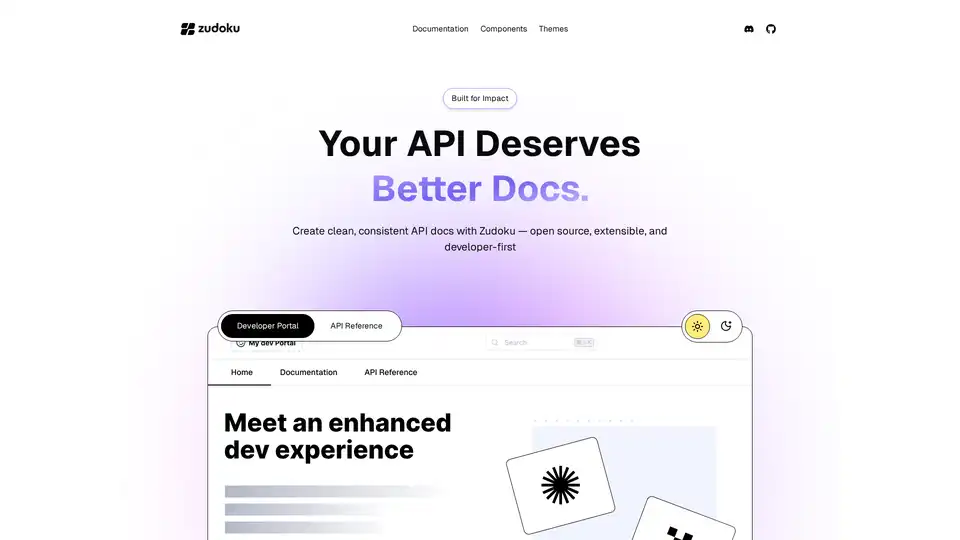Zudoku
Overview of Zudoku
Zudoku: Revolutionizing API Documentation with Open Source
What is Zudoku? Zudoku is an open-source, extensible, and developer-first tool designed to create clean, consistent API documentation. It empowers developers to generate comprehensive documentation effortlessly, reducing the overhead and complexities associated with manual documentation.
How does Zudoku work?
Zudoku streamlines the API documentation process through several key features:
1. Auto-generation from OpenAPI Schemas:
Zudoku simplifies the documentation process by automatically generating documentation from OpenAPI v2/v3 schemas. Whether you're working with a single API or multiple APIs, Zudoku intelligently parses the schema and creates a well-structured documentation.
2. Interactive API Playground:
Test endpoints live with Zudoku's interactive playground. This feature supports API keys and authentication, enabling developers to experiment with APIs directly from the documentation.
3. Built-in Authentication Support:
Zudoku includes built-in authentication and authorization support for popular protocols like OAuth2 and JWT, ensuring that your API documentation can handle secure APIs.
4. Static Site Generation for SEO:
Zudoku enables you to ship your documentation as fast, SEO-friendly static pages. This ensures that your API docs are easily discoverable and perform well in search engine rankings.
5. MDX Support
Generate documentation from markdown files, perfect for SEO and performance. This allows incorporating various elements like code snippets, interactive components, and rich media to enhance the documentation further.
6. Customizable Components:
Tailor the developer experience with reusable components or create your own. Zudoku provides a suite of components that can be customized to match your brand and style.
Key Features of Zudoku:
- API Catalog: Automatically generate docs form OpenAPI v2/v3 schemas.
- Authentication Ready: Built-in authentication and authorization support for OAuth2, JWT, and more.
- Interactive Playground: Test endpoints live, with support for API keys and auth.
- Built-in Search: Instant, intelligent search powered by Pagefind, Inkeep, etc.
How to Use Zudoku?
Getting started with Zudoku is straightforward. Here’s a quick guide:
Install Zudoku: Use npm to install Zudoku globally on your CLI:
npm create zudoku@latest npm run zudoku installAdd Your OpenAPI: Bring your OpenAPI schema into the project and add it to the Zudoku config.
Start Customizing: Use Zudoku's flexible customization features to add your own brand and style.
Who is Zudoku for?
- Developers: Simplify API documentation to focus more on development.
- Technical Writers: Produce comprehensive API documentation.
- Organizations: Maintain clear and accessible documentation for internal and external APIs.
Why Choose Zudoku?
- Open Source: Free to use and modify to fit your needs.
- Extensible: Easy integration with existing plugins (both community and core).
- Developer-First: Designed with developers in mind, ensures a smooth and efficient documentation process.
In summary, Zudoku is a robust, open-source solution designed to streamline API documentation. Its auto-generation capabilities, extensibility, customizable components, and built-in features such as search and interactive playgrounds make it an invaluable tool for developers and organizations. By choosing Zudoku, teams can ensure their API documentation is comprehensive, user-friendly, and SEO-optimized, thereby improving developer experience and overall project success.
Best Alternative Tools to "Zudoku"
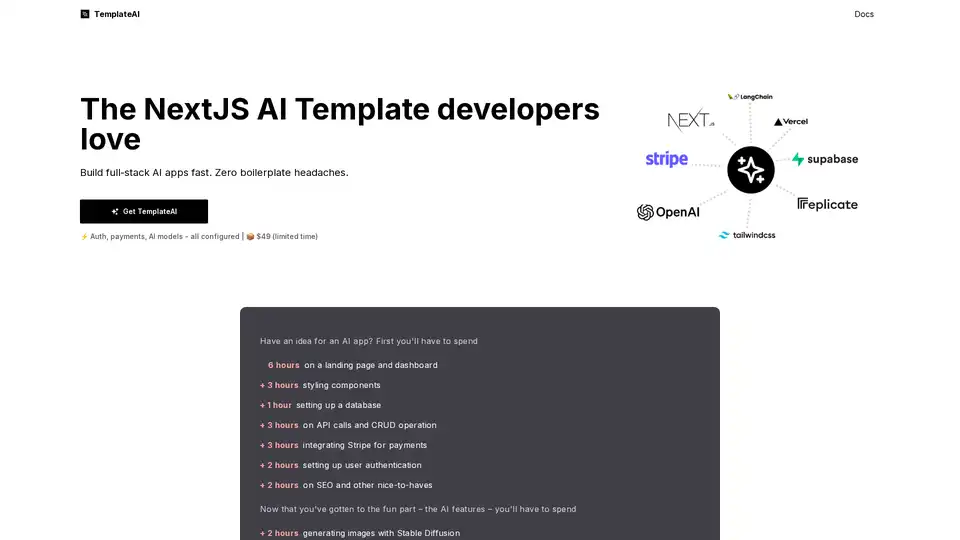
TemplateAI is the leading NextJS template for AI apps, featuring Supabase auth, Stripe payments, OpenAI/Claude integration, and ready-to-use AI components for fast full-stack development.
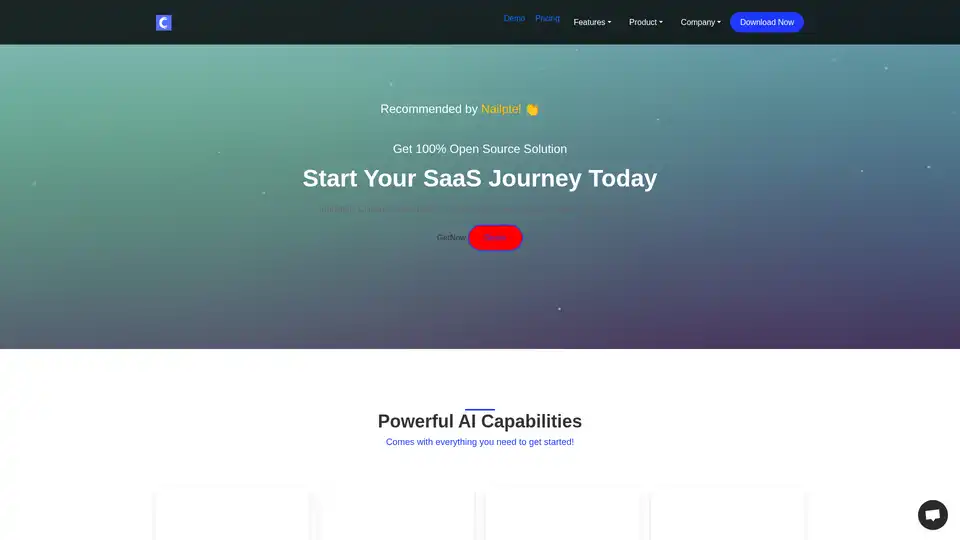
ClarityWrite is an open-source SaaS script that uses AI to generate high-quality content, including writing, images, code, and transcriptions. It offers various plans and support options.
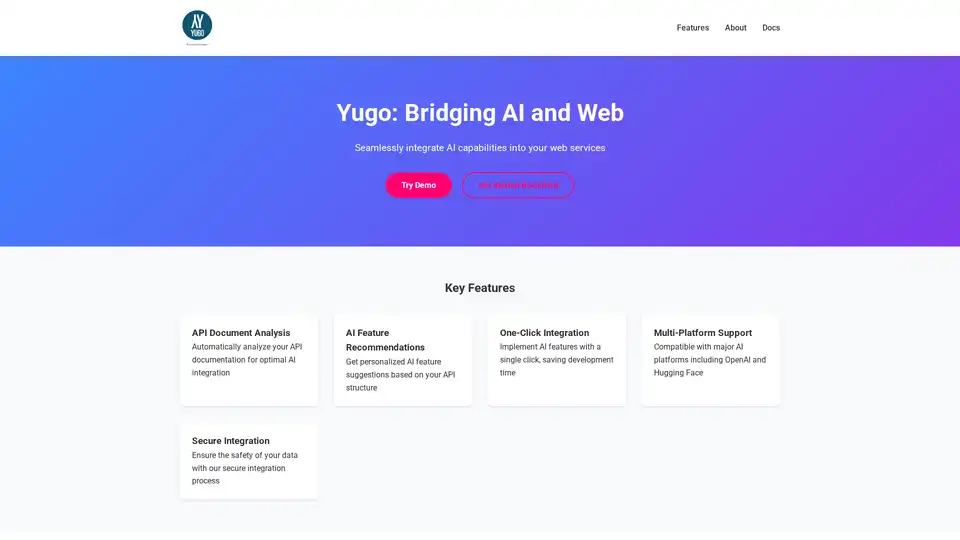
Yugo simplifies AI integration into web services with automated API analysis, personalized feature recommendations, and one-click implementation, empowering developers to build advanced applications efficiently.
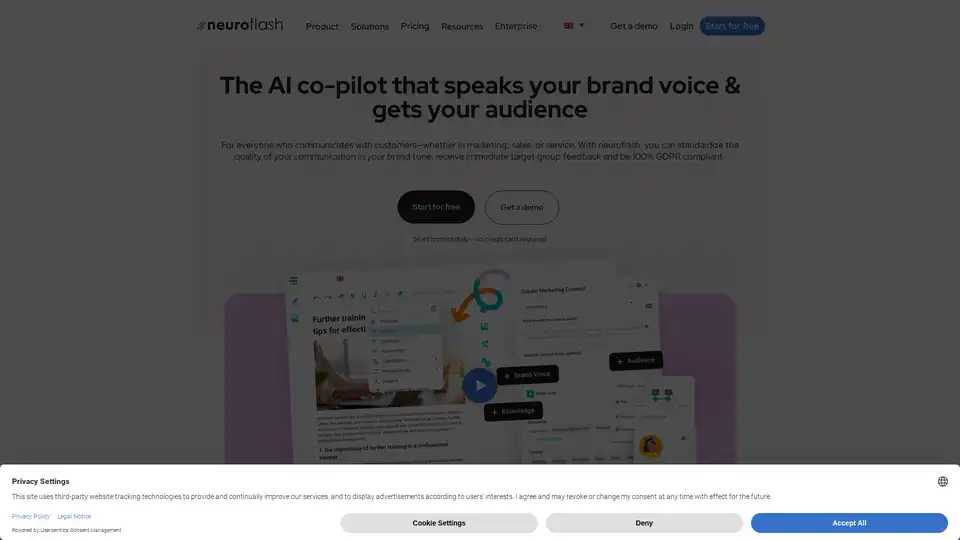
Neuroflash is Europe's leading AI platform for generating high-quality text and images in 7 languages. Streamline content creation with SEO tools, brand voice customization, and performance predictions for marketing and sales.
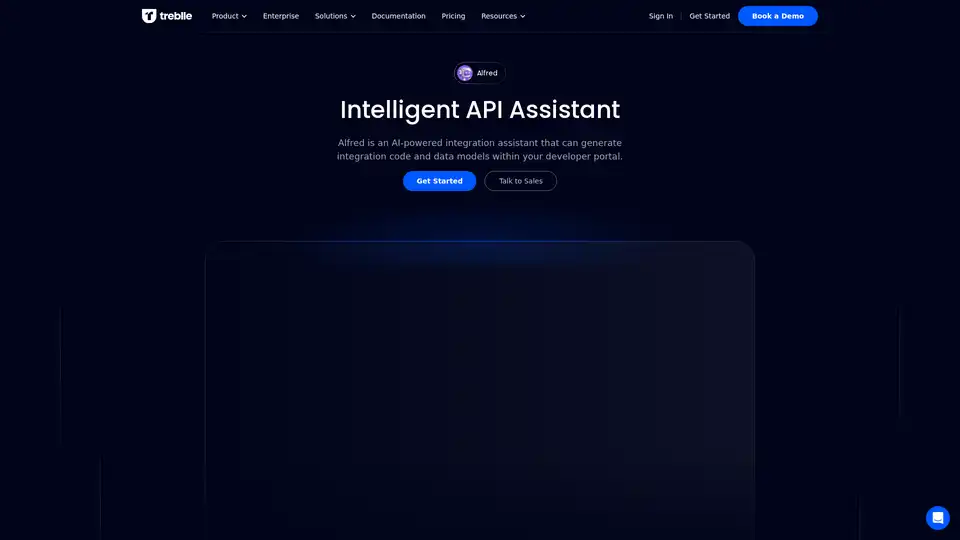
Transform your developer portal with Alfred AI—automating workflows, generating integrations, tests, or SDKs in any language, and boosting API speed 10x.
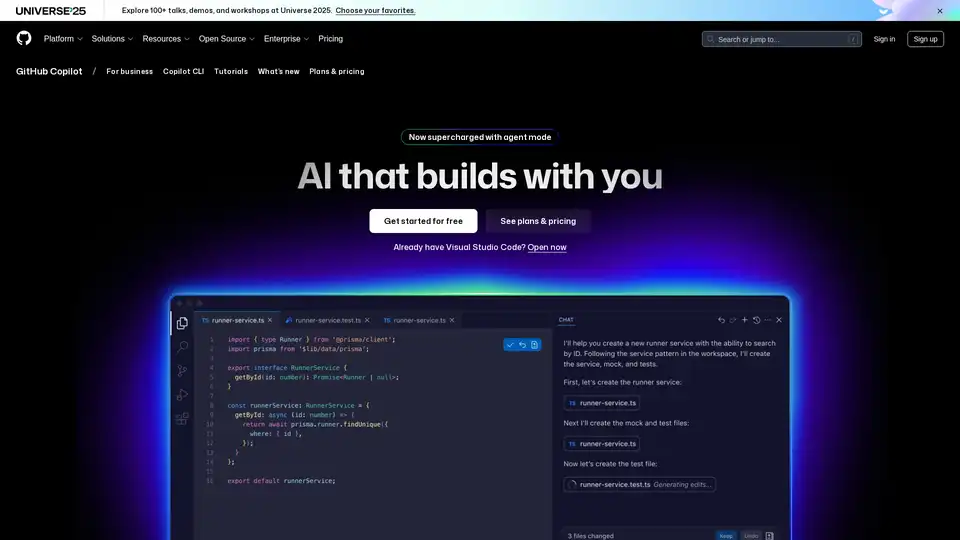
GitHub Copilot is an AI-powered coding assistant that integrates into your IDE, suggesting code lines, handling issues via agent mode, and providing reviews to boost developer productivity.
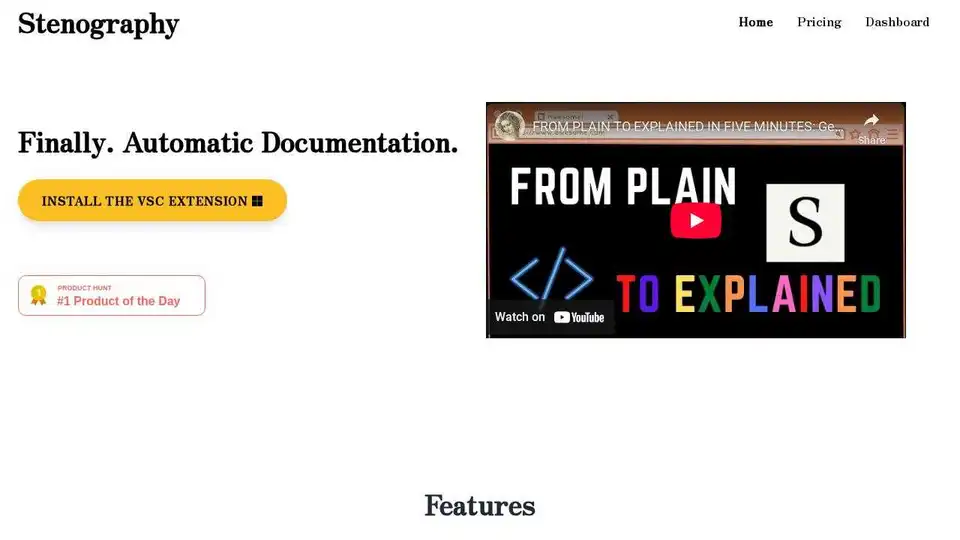
Stenography is an AI-powered VSC extension for automatic code documentation. It offers a powerful API, Stack Overflow suggestions, and integrates with various extensions, prioritizing user privacy with a passthrough API.
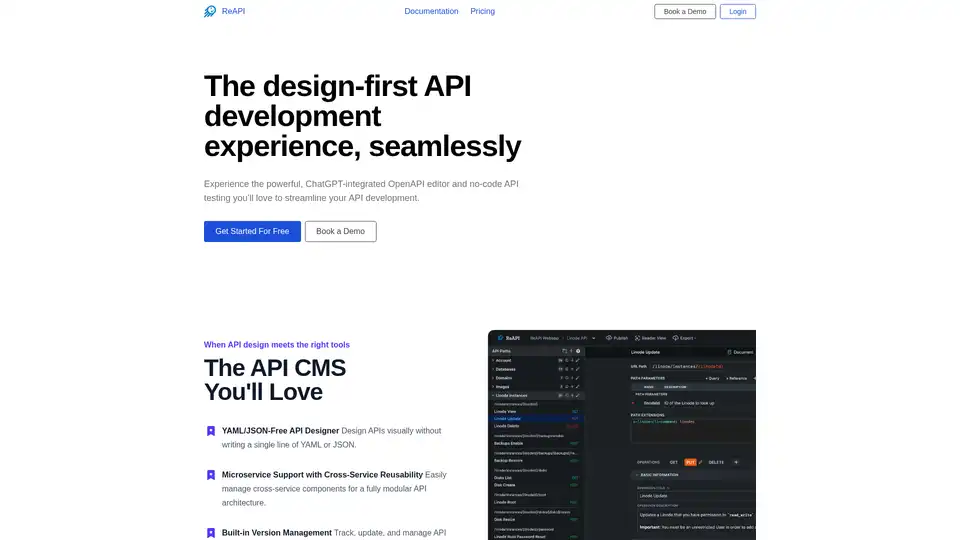
ReAPI is an AI-powered API development platform featuring ChatGPT-integrated OpenAPI editing, no-code testing, and automated documentation generation for streamlined API workflows.
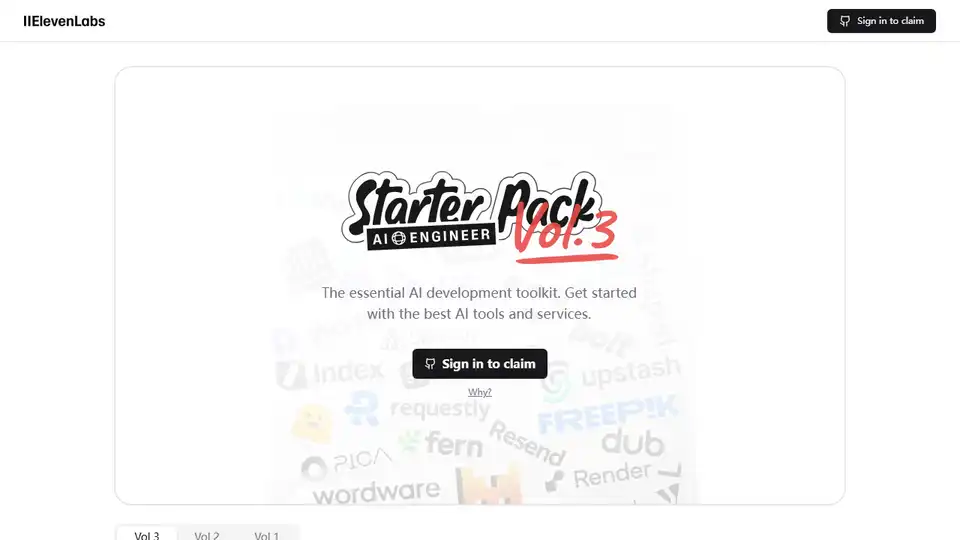
The AI Engineer Pack by ElevenLabs is the AI starter pack every developer needs. It offers exclusive access to premium AI tools and services like ElevenLabs, Mistral, and Perplexity.

GPT Proto provides unified access to leading AI models like GPT, Claude, and Midjourney through a single API platform. It offers pay-as-you-go pricing, high stability, and is designed for developers and innovators.
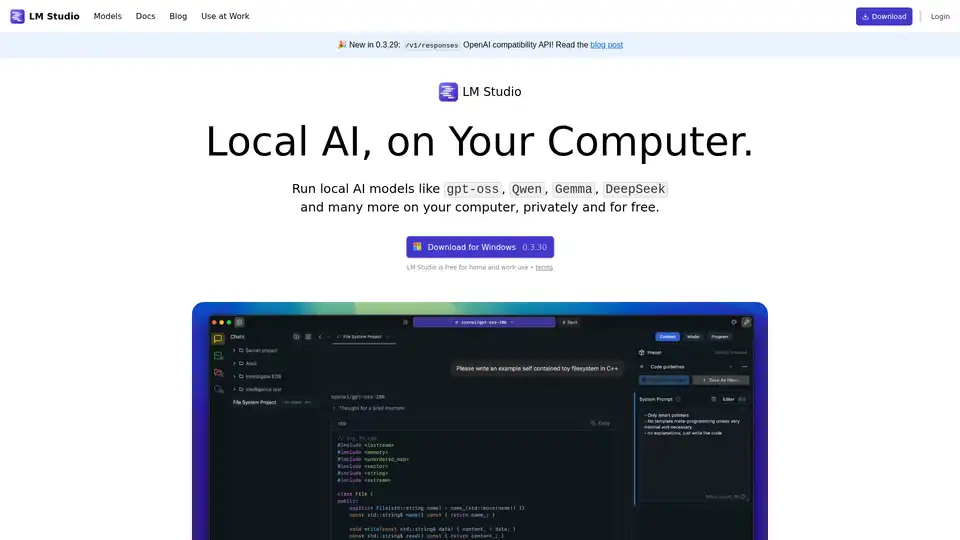
LM Studio enables you to run local AI models like gpt-oss, Qwen, Gemma, and DeepSeek on your computer, privately and for free. It supports developer resources like JS and Python SDKs.
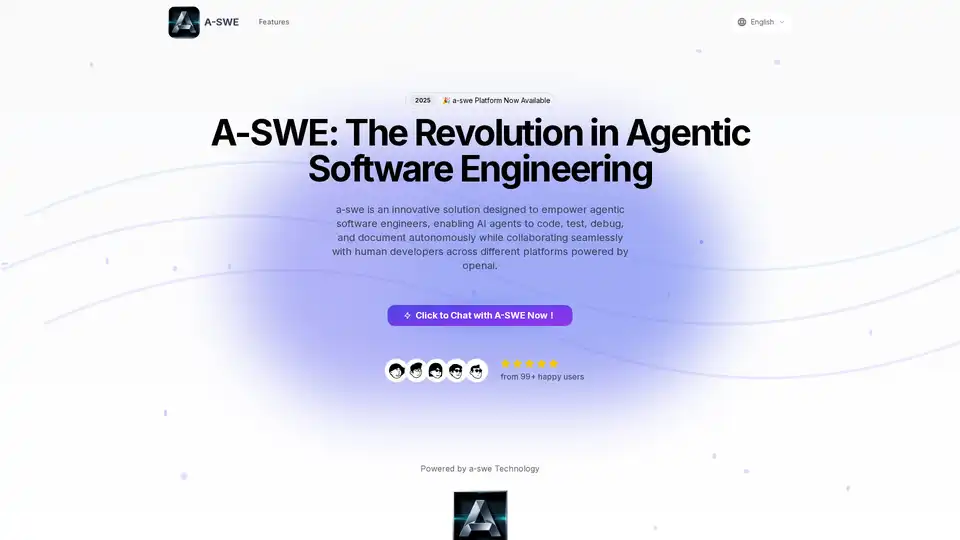
A-SWE is an AI platform designed to empower agentic software engineers, enabling AI agents to autonomously code, test, debug, and document, enhancing software development.
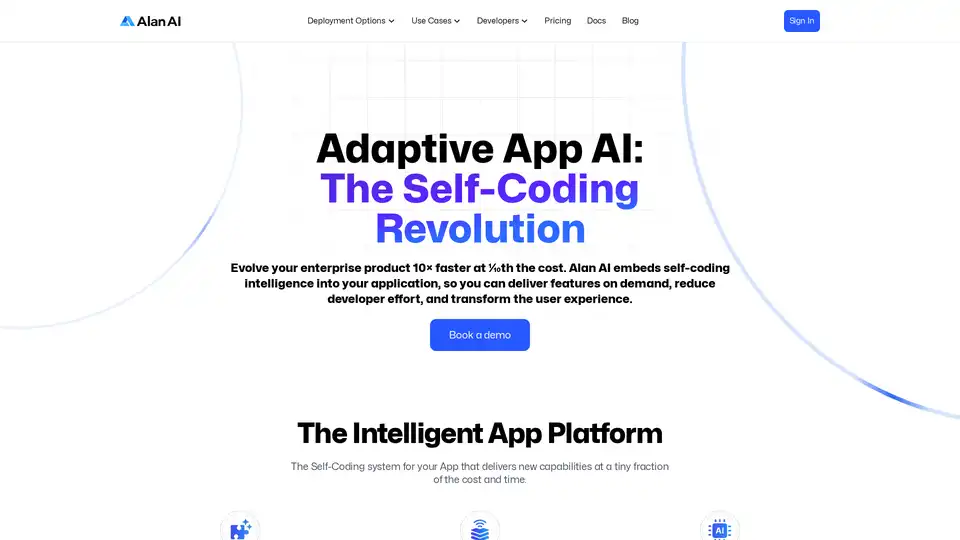
Alan AI is an Adaptive App AI platform that enables self-coding intelligence for enterprise applications. Deliver features on demand with a self-coding system, reducing developer effort and transforming user experiences.
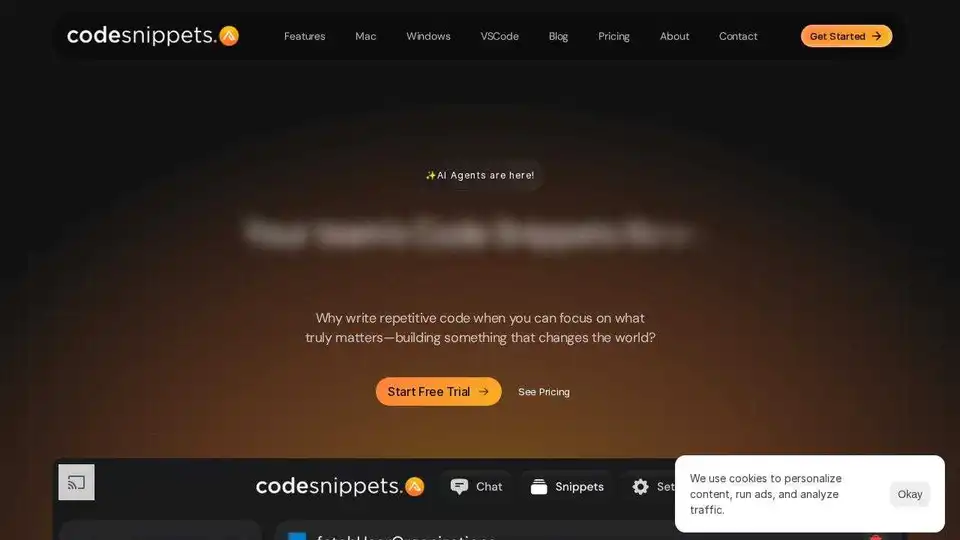
Code Snippets AI enhances coding with AI-driven snippet management, seamlessly integrating LLMs for efficient code generation, debugging, and collaboration. Try it free!
